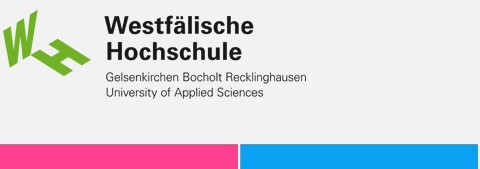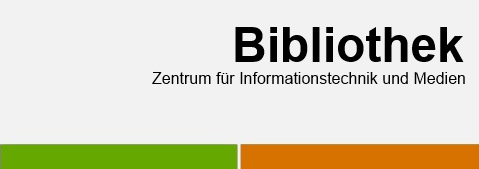Informatik und Kommunikation
Filtern
Erscheinungsjahr
Dokumenttyp
- Video (60)
- Konferenzveröffentlichung (45)
- Teil eines Buches (Kapitel) (39)
- Wissenschaftlicher Artikel (32)
- Lehrmaterial (13)
- Buch (Monographie) (11)
- Vorlesung (7)
- Beitrag zu einer (nichtwissenschaftlichen) Zeitung oder Zeitschrift (4)
- Sonstiges (3)
- Masterarbeit (2)
Schlagworte
- Robotik (30)
- Flugkörper (21)
- UAV (21)
- Journalismus (15)
- Rettungsrobotik (8)
- 3D Modell (7)
- Akkreditierung (7)
- E-Learning (7)
- Marketing (6)
- Radio-Feature (6)
- Mikroinformatik (5)
- Virtuelle Hochschule (5)
- Erweiterte Realität <Informatik> (4)
- Human-Robot Interaction (4)
- Mikrocomputer (4)
- Mikroprozessor (4)
- Rasenmäher (4)
- World Wide Web 2.0 (4)
- Alternative Geschäftsmodelle (3)
- Augmented Reality (3)
- DRZ (3)
- Datenjournalismus (3)
- Deutsches Rettungsrobotik-Zentrum (3)
- Informatik (3)
- Kommunikation im Internet (3)
- Kommunikationswissenschaft (3)
- Kulturmanagement (3)
- Medieninformatik (3)
- Online-Medien (3)
- SLAM (3)
- Studiengang (3)
- Studium (3)
- Werbung (3)
- Bologna-Prozess (2)
- Branding (2)
- CD-ROM (2)
- Club-TV (2)
- Content-Marketing (2)
- Crowdfunding (2)
- Empirische Methoden (2)
- Fachjournalismus (2)
- Gatekeeping (2)
- Gestaltung (2)
- Graswurzel-Journalismus (2)
- Hands-free Interaction (2)
- Innovation (2)
- Intel-Prozessor (2)
- Internet (2)
- Kartierung (2)
- Lernraum (2)
- Mapping (2)
- Medienforschung (2)
- Medienrecht (2)
- Mikrocomputertechnik (2)
- Netzwerk-Medien (2)
- Partizipativer Journalismus (2)
- Personal Computer (2)
- Physik (2)
- Point Clouds (2)
- Qualifikationsrahmen (2)
- Social Media (2)
- Tetraplegie (2)
- Trennungsgrundsatz (2)
- Twitter <Softwareplattform> (2)
- Ubuntu (2)
- Vegetationsbrand (2)
- Wissenschaftliches Arbeiten (2)
- composition (2)
- design process (2)
- gender stereotypes (2)
- gender-sensitive design (2)
- gender-specific design (2)
- Öffentlichkeitsarbeit (2)
- Ökonomie (2)
- 360° Panorama (1)
- 3D-Printer (1)
- ANSI-C (1)
- Adobe Audition (1)
- Akademischer Grad (1)
- Akkreditierung (1)
- Akkreditierungsagentur (1)
- Akkreditierungsagentur für Studiengänge der Ingenieurwissenschaften, der Informatik, der Naturwissenschaften und der Mathematik (1)
- Akustik (1)
- Alltagsunterstützende Assistenzlösung (1)
- Arbeitsbelastung (1)
- Arbeitsmotivation (1)
- Arbeitspsychologie (1)
- Artificial Intelligence (1)
- Arzneimittel (1)
- Assembler-Prgrammierung (1)
- Assisted living technologies (1)
- Assistive robotics (1)
- Atomphysik (1)
- Audioschnitt (1)
- Automatisierung (1)
- Automatisierung, Journalismus, Literaturüberblick (1)
- Autonomous Agents (1)
- BSM (1)
- Bachelor-Studiengang (1)
- Bachelorstudiengang (1)
- Bachelorstudium (1)
- Befragung (1)
- Berufsbefähigung (1)
- Berufseinsteiger (1)
- Berufsfeldstudie (1)
- Bildverarbeitung (1)
- Bodily sensation maps (1)
- Boulevardisierung (1)
- Brand theory (1)
- COVID-19 (1)
- CRM (1)
- Chief Executive Officer (1)
- Codegenerierung (1)
- Commercial communication (1)
- Communication management (1)
- Continuous Queries (1)
- Corporate Identity (1)
- Curriculanormwert (1)
- Data Journalism (1)
- Datalog (1)
- Datenanalyse (1)
- Deductive Databases (1)
- Depression (1)
- Designprozess (1)
- Digitale Speicher (1)
- Elektrizitätslehre (1)
- Emotion induction (1)
- Enterprise JavaBeans (1)
- Entgrenzung (1)
- Enthüllungsjournalismus (1)
- Evaluation (1)
- Eventmanagement; digitale Events; interne Kommunikation (1)
- Exposé (1)
- Fachgesellschaft (1)
- Fernsehnachrichten (1)
- Fernsehsendung (1)
- Festkörperphysik (1)
- Freundeskreis (1)
- Fuzzy-Optimierung (1)
- Galtung (1)
- Gatewatching (1)
- Gehirn & Computer (1)
- Genderstereotype (1)
- Generation Y (1)
- Geräusche (1)
- Geschichte (1)
- Geschlecht (1)
- Greek dept crisis (1)
- Halbleiterspeicher (1)
- Hochschulbildung (1)
- Hochschulqualifizierungsprozess (1)
- Human-centered computing (1)
- Hören (1)
- IAPS (1)
- Incremental Evaluation (1)
- Inferenz <Künstliche Intelligenz> (1)
- Informatikstudium (1)
- Ingenieurstudium (1)
- Integrierte Schaltung (1)
- Interaktion (1)
- Intereffikation (1)
- Internationalisierung (1)
- Interrupt <Informatik> (1)
- Journalism (1)
- Journalistenausbildung (1)
- Kalman filter (1)
- Kernphysik (1)
- Kommunikation (1)
- Komposition (1)
- Kreditpunktesystem (1)
- Kulturelle Einrichtung (1)
- Kulturforschung (1)
- Kulturmarketing (1)
- Kultursponsoring (1)
- Kundenmanagement (1)
- Künstliche Intelligenz (1)
- MS-DOS (1)
- MS-DOS; Betriebssystem (1)
- Machine Learning (1)
- Magnetspeicher (1)
- Manuskript (1)
- Markenmanagement (1)
- Maschinenintelligenz (1)
- Master-Studiengang (1)
- Masterstudiengang (1)
- Masterstudium (1)
- Mathematikstudium (1)
- Mechanik (1)
- Media Brands (1)
- Media brand characteristics (1)
- Media ethics (1)
- Media law (1)
- Media positioning (1)
- Medialisierung (1)
- Medication (1)
- Medienethik (1)
- Mensch-Roboter (1)
- Menschheitsentwicklung (1)
- Mikrofon (1)
- Mikroprozessor-Technologie (1)
- Mixed Reality (1)
- Modellierung (1)
- Modularisierung (1)
- Multi-Agent System (1)
- Musik (1)
- Nachrichtensendung (1)
- Nachrichtenwert (1)
- Nachrichtenwerttheorie (1)
- Naturwissenschaftliches Studium (1)
- NeRF (1)
- Netzkommunikation (1)
- Netzwerköffentlichkeit (1)
- New Work, Information and Communication Industry, Innovation, Organizational Goals, Survey (1)
- Normalisierung (1)
- Object Recognition (1)
- Object-relational Mapping (1)
- Online-Studium (1)
- Optik (1)
- Ortsbestimmung (1)
- Outcome-Orientierung (1)
- PASCAL (1)
- PR (1)
- Pandemie (1)
- People with disabilities (1)
- Persistenz <Informatik> (1)
- Politikjournalismus (1)
- Politische Berichterstattung (1)
- Politische Kommunikation (1)
- Politische Wissenschaft (1)
- Praxissemester (1)
- Principle of separation (1)
- Professor (1)
- Präsentation (1)
- Qualitätssteigerung (1)
- Redaktion (1)
- Relativitätstheorie (1)
- Replication (1)
- Rescue Robotics (1)
- Robot assistive drinking (1)
- Robot assistive eating (1)
- Schleichwerbung (1)
- Schreiben (1)
- Schwingung (1)
- Selbstverständnis (1)
- Small UAVs (1)
- Smart Grid (1)
- Sozialkompetenz (1)
- Sport-Marketing (1)
- Sportpublizistik (1)
- Sprechen (1)
- Stimme (1)
- Streaming (1)
- Studie (1)
- Studienverlauf (1)
- Studierbarkeit (1)
- Supercomputer (1)
- TV-Journalismus (1)
- Thermodynamik (1)
- Travelling-salesman-Problem (1)
- Trendstudie (1)
- Twitter (1)
- Update Propagation (1)
- Vegetationsbrandübung (1)
- Vegetatonsbrandübung (1)
- Virtualisierung (1)
- Virtuelle 3D-Welt (1)
- Virtuelle Realität (1)
- Virtueller Lernraum (1)
- Visual Monocular SLAM (1)
- Wahlforschung (1)
- Weiterbildung (1)
- Welle (1)
- Werbewirkung (1)
- Workload (1)
- Zeitschrift (1)
- Zitat (1)
- Zustandsmaschine (1)
- assistive robotics (1)
- augmented reality (1)
- balance (1)
- cobot (1)
- design tools (1)
- ethics (1)
- expert interviews (1)
- gendersensibles Design (1)
- human robot interaction (1)
- human-centered design (1)
- human-robot collaboration (1)
- hybrid sensor system (1)
- international comparative study (1)
- media accountability (1)
- neutrality (1)
- normalisation (1)
- participatory design (1)
- political journalism (1)
- projection (1)
- quality standards (1)
- relevance (1)
- risk management (1)
- role identity (1)
- sensor fusion (1)
- shared user control (1)
- state machine (1)
- television news coverage (1)
- user acceptance (1)
- virtual reality (1)
- visual cues (1)
- visualization techniques (1)
- watchblogs (1)
Institut
Background: Priority during the SARS-CoV2 pandemic is that employees need to be protected from infection risks and business activities need to be ensured. New virus variants with increased infection risks require an evolved risk strategy.
Material and methods: Several standard measures such as testing, isolation and quarantine are com-bined to a novel risk strategy. Epidemiological model calculations and scientific knowledge about the course of SARS-CoV2 infectivity are used to optimize this strategy. The procedure is implemented in an easy-to-use calculator based on Excel.
Layout in practice and results: Alternative combinations of measures and practical aspects are dis-cussed. Example calculations are used to demonstrate the effect of the discussed measures.
Conclusion: That quarantine calculator derived from these principles enables even non-specialists to perform a differentiated risk analysis and to introduce optimized measures. Targeted testing routines and alternative measures ensure staff availability.


